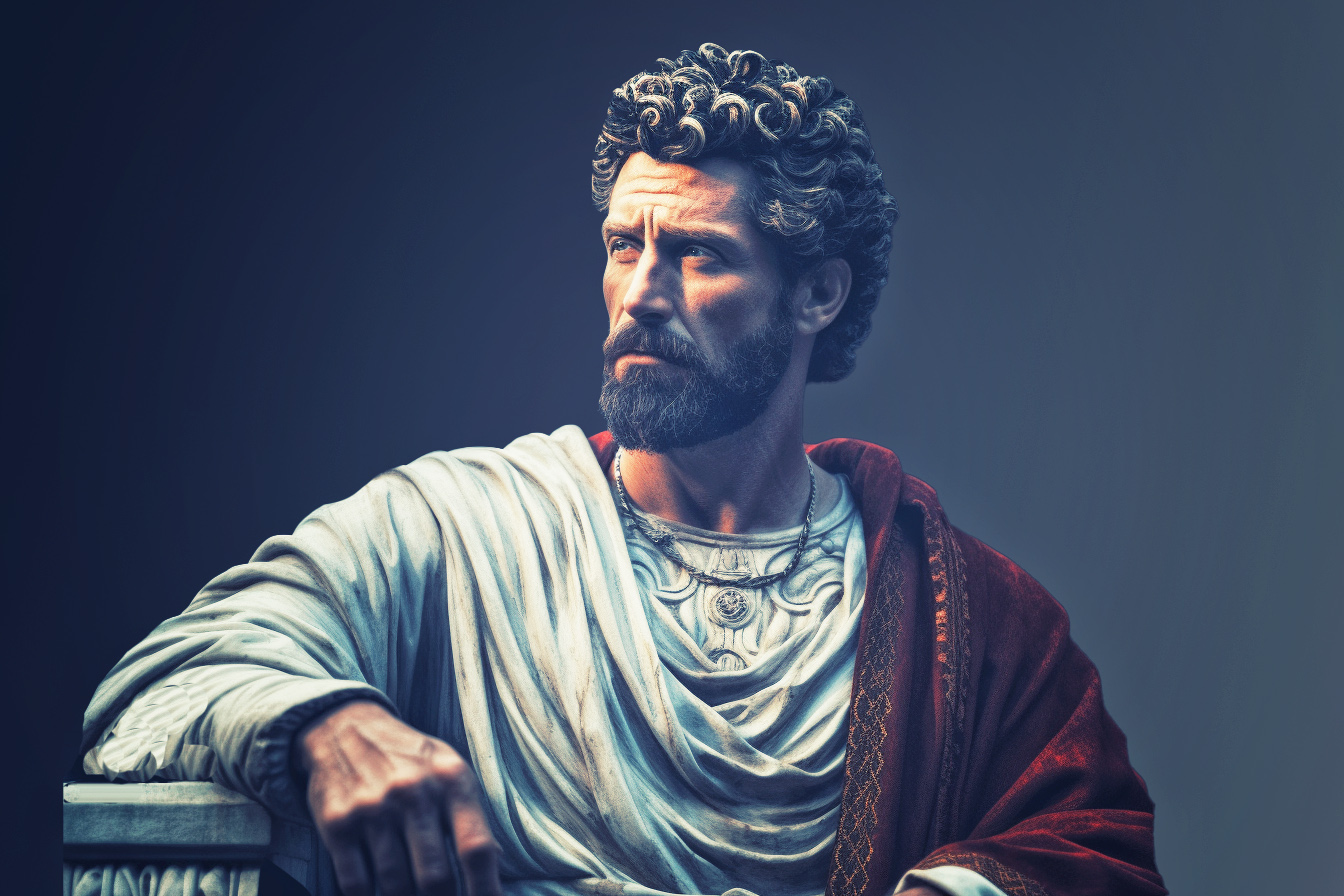The ancient Roman emperor Marcus Aurelius was one of history’s most influential Stoic philosophers. During his reign from 161-180 AD, Aurelius penned profound reflections and principles that provide timeless wisdom on how to live with purpose, virtue, and tranquility despite adversity.
More than 15 centuries after his death, Aurelius’ meditations in works like The Meditations continue inspiring millions and reminding us that applying reason enables overcoming life’s difficulties. Aurelius advocated principles of moderation, emotional resilience, and moral righteousness that we can implement just as helpful today.
By focusing on what we control, accepting change with courage, and dutifully serving society, Aurelius demonstrated how Stoicism allows for maintaining stability and living in harmony with nature. This essay will explore critical lessons from Marcus Aurelius and their relevance in modern times. Examining this great philosopher’s teachings highlights the enduring value of Stoicism’s emphasis on virtue, wisdom, and our shared human experience.
1. Live According to Nature
The Stoics believed in living rationally and virtuously by fulfilling one’s natural purpose. Instead of pursuing fame or wealth, we can focus on applying reason, furthering justice, exercising moderation, and developing wisdom.
As a doctor, Tina found the most meaning in using her skills to volunteer at an underserved clinic rather than earning the highest salary at a prestigious hospital.
2. Focus Your Energy Wisely
Marcus Aurelius knew we control our judgment and perspective but not external outcomes. Fretting over what we can’t change wastes precious energy. We can justly accept what life presents.
After years of anxiously obsessing over her adult daughter’s decisions, Sue began focusing on her growth and finding serenity in letting go of control. This reduced her suffering tremendously.
3. Manage Your Perspective
Our judgments shape our reality more than external events. Marcus Aurelius advised examining our perceptions and assumptions regularly to remain objective. Each moment offers a chance to reset.
When Michele noticed herself judging a colleague harshly, she paused to consider the bias shaping her view. Suspending these assumptions allowed her to approach the relationship afresh.
4. Accept Change Courageously
Impermanence is inevitable, so Aurelius advised meeting each new challenge with courage, wisdom, and grace. We can adapt without resentment to life’s natural flux. Change reveals growth opportunities.
Layoffs at his company filled Jose with anxiety initially. However, with resilient optimism, he saw the disruption as a chance to reassess his values and chart a more meaningful course in the future.
5. Reflect on Mortality
Stoics contemplate death to appreciate life’s impermanence fully. Visualizing our mortality inspires us to live purposefully and cherish each irreplaceable moment. Memento mori – remember you will die.
The sudden passing of her father motivated Lisa to spend less time distracted on devices and more fully present with loved ones — appreciating every shared experience as the gift it is.
6. Progress Over Perfection
Marcus Aurelius focused on consistent, incremental improvement over time rather than demanding flawlessness. We benefit from the journey as long as we sincerely strive to implement Stoic practices.
Sara cut herself slack for not mastering Roman philosophies overnight. She focused on small, daily efforts like meditation, journaling, and acting virtuously. Gradually, she internalized the wisdom.
7. Cultivate Relationships
Marcus Aurelius recognized the importance of community and close relationships in a society obsessed with wealth and status. Investing in family and friends leads to deeper fulfillment.
Feeling isolated as a new parent, Mia joined a local mothers’ group and scheduled regular calls with lifelong friends. These sincere connections provided meaning beyond her role and identity as a mother.
8. Overcome Anger with Reason
Marcus Aurelius cautioned against reacting rashly in anger. He advised looking inward, examining our judgments, and responding to others with rational understanding rather than provocation.
Instead of lashing out when her son yelled at her disrespectfully, Cindy took a few deep breaths. She considered his perspective and then explained her feelings calmly. This diffused the conflict.
9. Find Joy in Simple Pleasures
The Stoics warn against overindulgence in favor of life’s essential gifts like family, nature, health, and meaningful work. Marcus Aurelius tried to delight in simple moments without needing excess.
David resisted pressure to overspend on lavish vacations and events to impress others. He found greater peace, savoring long hikes, reading, and spending time with his partner and pets.
10. Do Your Duty
Stoics believe in dutifully serving society through work that contributes to humankind. Marcus Aurelius led the Roman Empire guided by justice, reason, and service. He sought to benefit the common good.
As a city council member, Toni based decisions on furthering human dignity and equitable access to education and healthcare rather than self-interest or popular opinion. Her principles aligned with Aurelius.
Conclusion
Marcus Aurelius’ profound teachings demonstrate how applying Stoic philosophy allows us to approach life’s difficulties with tranquility. His wisdom highlights the importance of community, virtue, moderation, and perseverance. We can apply these lessons just as usefully today, 2000 years later.
The Roman emperor’s meditations provided a moral compass to stay centered amidst adversity. Aurelius guides us toward self-mastery and righteous action by focusing our energy wisely, managing perspectives objectively, and overcoming anger with reason. His timeless principles emphasize the human community and our capacity for wisdom, justice, and service to others.
Reflecting on Marcus Aurelius’ insights offers encouragement as we face modern challenges, from personal struggles to societal discord. His meditations remind us that with courage, moderation, and rational discernment, we can move forward with purpose despite uncertainty. The light of Stoicism embodied by this great Roman philosopher continues guiding the way.
